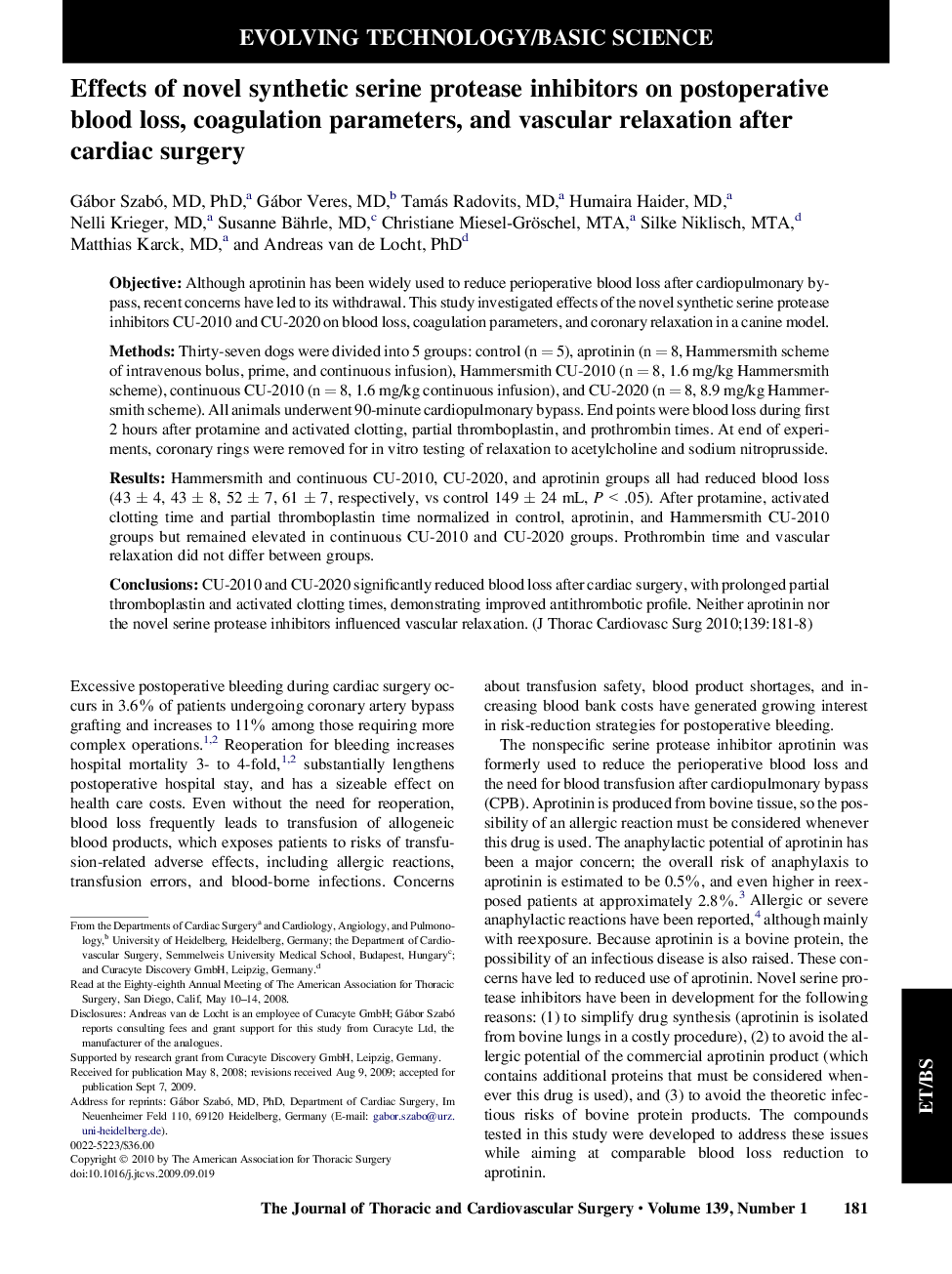| Article ID | Journal | Published Year | Pages | File Type |
|---|---|---|---|---|
| 2984723 | The Journal of Thoracic and Cardiovascular Surgery | 2010 | 8 Pages |
ObjectiveAlthough aprotinin has been widely used to reduce perioperative blood loss after cardiopulmonary bypass, recent concerns have led to its withdrawal. This study investigated effects of the novel synthetic serine protease inhibitors CU-2010 and CU-2020 on blood loss, coagulation parameters, and coronary relaxation in a canine model.MethodsThirty-seven dogs were divided into 5 groups: control (n = 5), aprotinin (n = 8, Hammersmith scheme of intravenous bolus, prime, and continuous infusion), Hammersmith CU-2010 (n = 8, 1.6 mg/kg Hammersmith scheme), continuous CU-2010 (n = 8, 1.6 mg/kg continuous infusion), and CU-2020 (n = 8, 8.9 mg/kg Hammersmith scheme). All animals underwent 90-minute cardiopulmonary bypass. End points were blood loss during first 2 hours after protamine and activated clotting, partial thromboplastin, and prothrombin times. At end of experiments, coronary rings were removed for in vitro testing of relaxation to acetylcholine and sodium nitroprusside.ResultsHammersmith and continuous CU-2010, CU-2020, and aprotinin groups all had reduced blood loss (43 ± 4, 43 ± 8, 52 ± 7, 61 ± 7, respectively, vs control 149 ± 24 mL, P < .05). After protamine, activated clotting time and partial thromboplastin time normalized in control, aprotinin, and Hammersmith CU-2010 groups but remained elevated in continuous CU-2010 and CU-2020 groups. Prothrombin time and vascular relaxation did not differ between groups.ConclusionsCU-2010 and CU-2020 significantly reduced blood loss after cardiac surgery, with prolonged partial thromboplastin and activated clotting times, demonstrating improved antithrombotic profile. Neither aprotinin nor the novel serine protease inhibitors influenced vascular relaxation.
